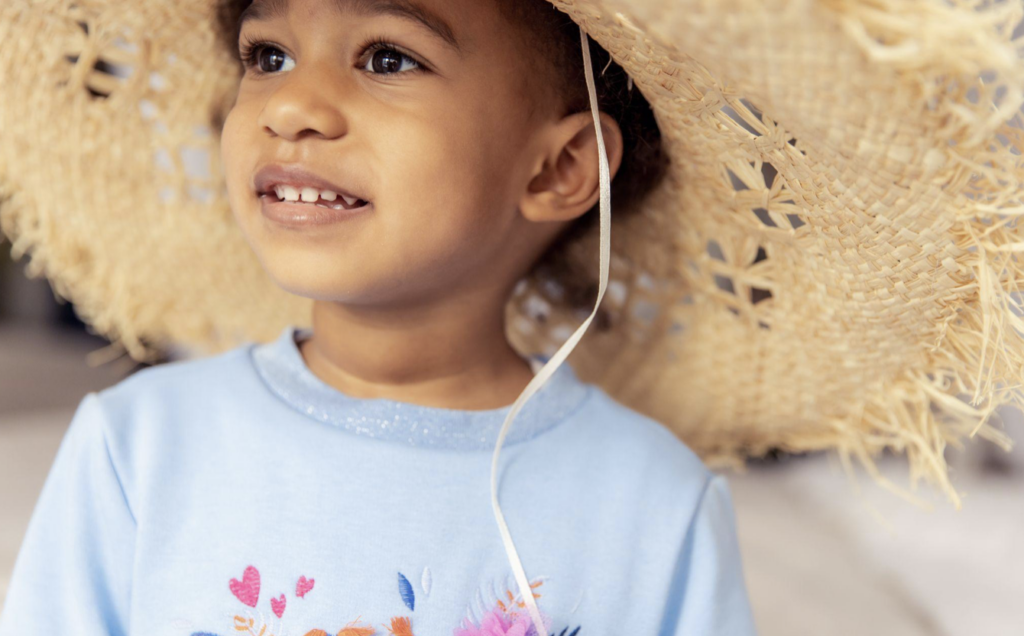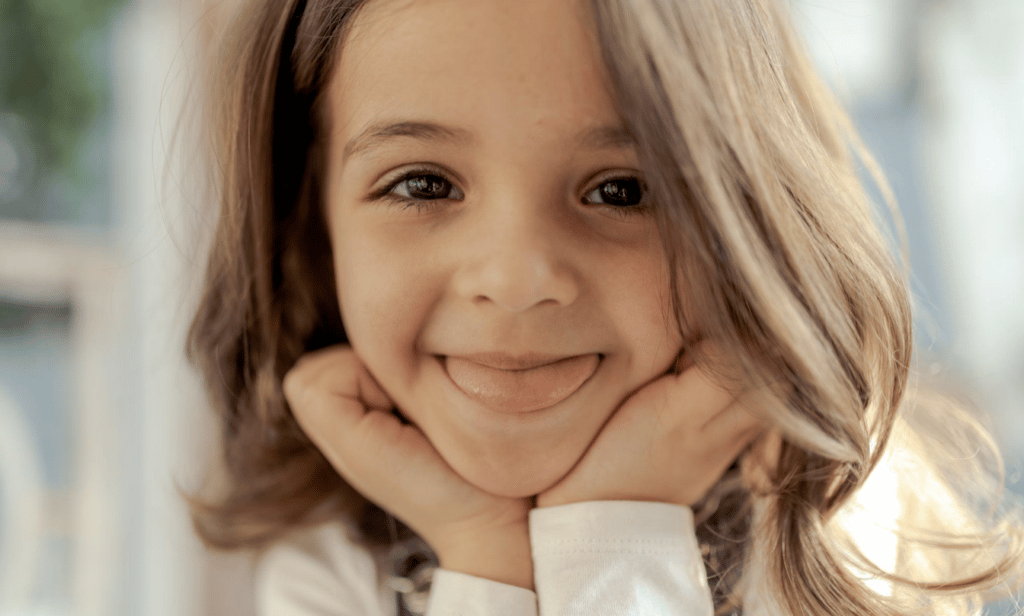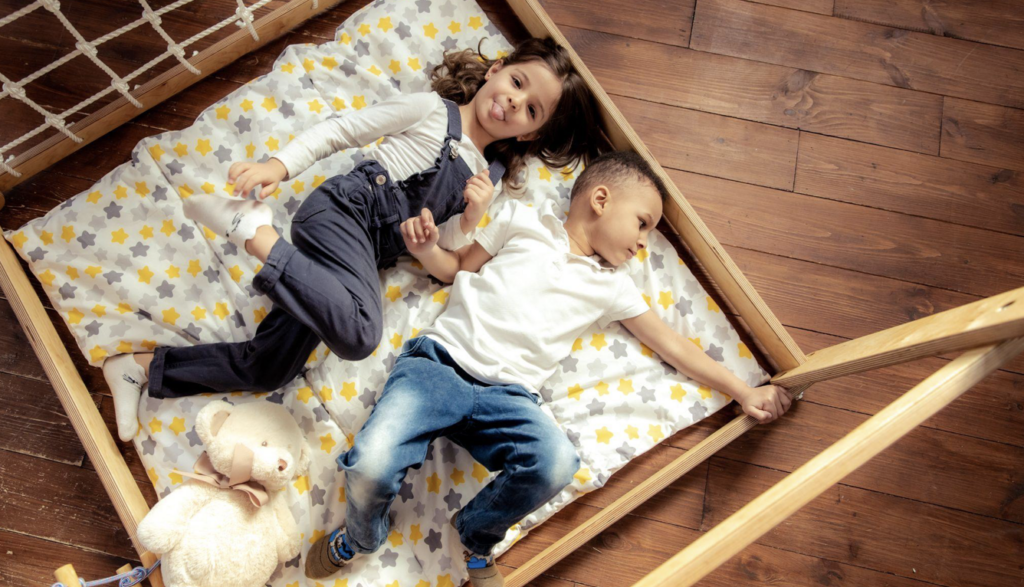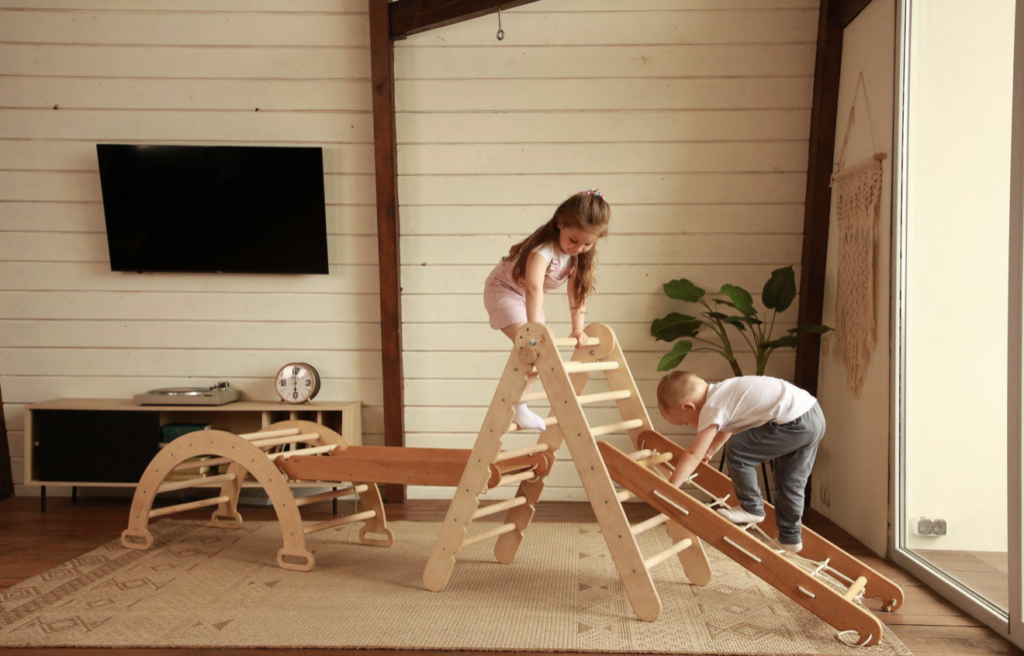Child development is known as the progression of a child’s physical, cognitive, social, and emotional changes from birth until adulthood. This period signifies a child’s advancement from complete dependency on his caretakers towards gradual independence.
Child development is usually explained through stages, tasks, and milestones. It is a continuous self-perfecting process, where each of its consecutive stages emerges from the ones before and lays the groundwork for those that will follow.

Development takes place throughout specific times or age periods during which a child is acquiring a new set of skills (tasks) or improving on their existing ones. Milestones are certain indicators that mark how children typically develop over time and whether they’re progressing as predicted.
In This Article
What does it include?
Child development can be described within 4 main domains:
- Physical abilities – fine and gross motor skills.
- Cognitive ability – the capacity to learn and solve problems.
- Social – managing emotions when communicating with others.
- Sensory awareness – recognizing and understanding the sensory information experienced.
There is no need to panic if your child doesn’t reach certain milestones at a corresponding age, as such are achieved within individually set timeframes, where your child might be struggling with some skills yet progressively excelling in others.

However, it is of primary importance to monitor and detect any deviations from usual development in order to timely address and take care of any potential further complications.
Remember: development in one domain has an impact on all the others since all of them are interconnected.
How does child development happen?
Know what you’re working with
The brain of an infant is hard-wired to absorb knowledge and develop from new interactions and experiences.
Have you ever wondered why it feels that time passes increasingly faster the older you get and how that changes whenever you escape your usual daily routine? Now imagine how much new information a newborn brain processes even in a day and the impact each experience leaves on it.

It is essential to understand that the innate survival mechanism dictates learning from one’s own experiences and environment to build cause-effect connections and learn to recognize the consequences of a certain action. This is crucial in understanding the immense significance of maintaining a healthy relationship and a comfortable social setting.
Play
Play is a child’s primary means of learning and character growth throughout the early stages of life. That is so because apart from being fun and enjoyable for your child, play provides opportunities to investigate, observe, experiment, and solve problems.
Children construct their identity through interactions with their environment and playing is all about that. Montessori climbing toys are proven by time to be one of the best methods to promote active development in children from as early as 1 and up to 6 years old!
With their functionality being limited and relying on cause and effect, Montessori climbing toys focus on teaching children about their own capabilities and goals set, which stimulates self-perfection.

The 4-in-1 Montessori climbing set from Goodevas features the timeless triangle ladder, arch/rocker climber, the climbing net, and the double-sided slide board/ramp, all made of premium-quality plywood and covered in natural protective coatings of linseed oil and beeswax. Such a selection of simplistic and straightforward toys results in a safe and everlasting toddler playground that grows with your child throughout his development.
Relationships and social settings
Since children learn from the interactions they experience, relationships act as the primary source of knowledge and directly influence their overall development by laying the foundation for their future progress in the mentioned domains.
The environment and the social setting have immense effects on the development process, as children will subsequently observe and inherit the traits, habits, and behaviors of people around them.
Positive interactions with friends and neighbors, as well as accessibility to parks, playgrounds, and such local amenities as playgroups, daycare, schools, libraries, and health clinics all contribute to your child’s development.
What is the role of a parent in child development?
Understanding your child and being a role model
Ultimately, it all comes down to recognizing the patterns of struggle and success in your child’s development and knowing precisely how to address them.
It is impossible to undervalue the effect of simply being present, here is a list of actions beneficial to a child’s development:
- Be included in your child’s current interests and obsessions
- Make sure your child gets enough rest and has a healthy sleeping schedule
- Encourage various daily play sessions
- Don’t forget about yourself and make sure you have the energy to take care of your child
- Maintain a healthy diet with high nutritional value
- Promote physical contact, such as holding hands, cuddles, grooming
- Engage in several serve-and-return interactions
- Periodically reflect on yourself to assess and correct the course of action you’re taking

It is crucial to mention that it is your responsibility to find the silver lining between supporting/assisting your child and promoting his own self-perfection, as mistakes build up experience and that is an essential part of the learning process.
Raising a child takes immense effort and is a continuous learning process for both of you – be present in the moment and respond to your child’s needs to develop and strengthen your relationship with him.
Works cited
Jindrich, Susan. “Learning Systems: How Children Develop.” The Global Development Research Center, www.gdrc.org/kmgmt/learning/child-learn.html. Accessed 18 Aug. 2022.
“8 Things to Remember about Child Development.” Center on the Developing Child at Harvard University, 29 Oct. 2020, developingchild.harvard.edu/resources/8-things-remember-child-development.
Buttfield, Joanna. “What Is Child Development?” Kid Sense Child Development, 30 Sept. 2019, childdevelopment.com.au/areas-of-concern/what-is-child-development.
“How Children Grow and Develop.” HealthyParentsHealthyChildren, www.healthyparentshealthychildren.ca/im-a-parent/overview-of-parenting/how-children-grow-and-develop. Accessed 18 Aug. 2022.
“Child Development: The First Five Years.” Raising Children Network, 13 Aug. 2020, raisingchildren.net.au/newborns/development/understanding-development/development-first-five-years.





![Home Renovation Guide [2025]](/app/uploads/2021/04/design-hacks-1-378x300.jpg)
